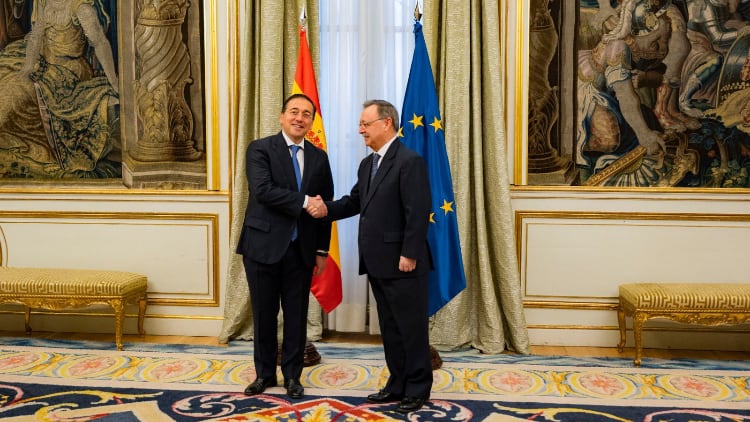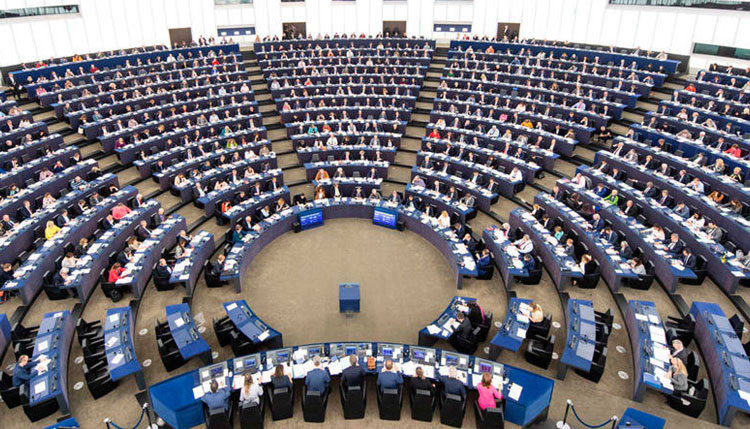The Diplomat
The Minister of Foreign Affairs, José Manuel Albares, will travel to Morocco on 11 May to take part in the ministerial meeting of the coalition against the Islamic State, according to diplomatic sources quoted by Europa Press.
The meeting is in Marrakech and will be attended, in addition to the Moroccan Foreign Minister, Naser Burita, as host, by the heads of diplomacy of the dozens of countries that make up the coalition, which is why the US Secretary of State, Antony Blinken, among others, is expected to attend.
The coalition was created in September 2014 with the aim of fighting Islamic State/Daesh on all fronts and currently has 84 members, including countries and international organisations.
Albares’ presence in Marrakech could lead to a bilateral meeting with Bourita, since both had to postpone the meeting they had scheduled for 1 April, after King Mohammed VI invited the Prime Minister, Pedro Sánchez, to travel to Rabat, to stage the opening of a new stage in relations between Morocco and Spain, following the support given by the Spanish government to the Moroccan autonomy plan for Western Sahara.
Albares accompanied Sánchez on this trip, but did not have the opportunity to talk slowly with his Moroccan counterpart, with whom he has spoken on several occasions by telephone in recent months, to try to put bilateral relations back on track.
The two foreign ministers are expected to play a key role in the coming months, as it will be up to them to coordinate the working groups that are to be set up in different sectors, with a view to holding the postponed High-Level Meeting (HLM), initially scheduled for December 2020, before the end of the year.
Ceuta and Melilla
For the time being, according to El Confidencial, Madrid and Rabat have agreed to reopen the borders of Ceuta and Melilla on 1 May, just when the latest extension of the closure decreed by the Spanish and Moroccan Interior Ministries comes to an end, and when Ramadan is about to end, or on 3 May, when the Muslim fasting period is over.
Yesterday, Albares, accompanied by the State Secretary for Foreign Affairs, Ángeles Moreno, received the President of Ceuta, Juan Vivas, of the PP, in his office, who reiterated the request to eliminate the exceptionality in the Schengen Treaty that has so far allowed Moroccans living in the region of Tetuan to access the Spanish town without a visa.
He also insisted on the request for the autonomous city to join the European Customs Union and for the EU institutions to give it a status comparable to that of the outermost regions.
In a communiqué, the government of Ceuta once again expresses its support for the agreement signed by Spain and Morocco on the 7th, considering that “a period of opportunities is opening up for the adoption of initiatives and measures to benefit the stability and prosperity” of the city.
In relation to the “forthcoming reopening” of the Tarajal border in a “gradual and progressive manner, Vivas pointed out that “it should culminate with the normalisation of this crossing point for the movement of both people and goods”.
According to the president of Ceuta, this “must lead, in terms of the transit of people, to the elimination of the current exception to the Schengen Treaty, by virtue of which residents of the neighbouring province of Tetuan can access the city without the need for a visa, and, in terms of goods, through the establishment of a commercial customs office”.
The minister replied to Vivas that he would “analyse” all his demands “with the greatest interest and in permanent contact with the city’s government”.
The Spanish government confirmed that, together with the Moroccan government, it is finalising the restoration of the movement of people and goods “in an orderly manner” and with “the appropriate customs and people control mechanisms on land and at sea”, as stipulated in the joint statement issued after the meeting between Sánchez and Mohamed VI, which includes Ceuta and Melilla.
They are also immersed in preparations for Operation Crossing the Straits, after two years of suspension due to the pandemic, as well as the reactivation of the “working group on the delimitation of maritime areas on the Atlantic coast”, which affects the waters of the Canary Islands, and the start of talks on the management of airspace, in addition to strengthening cooperation on immigration.







